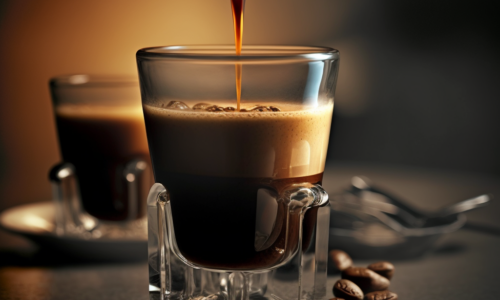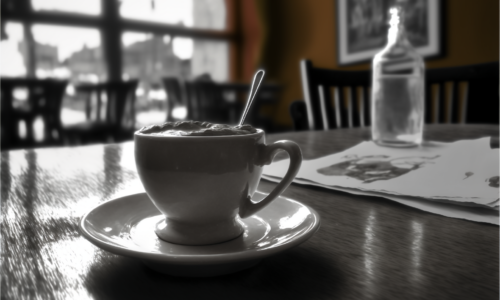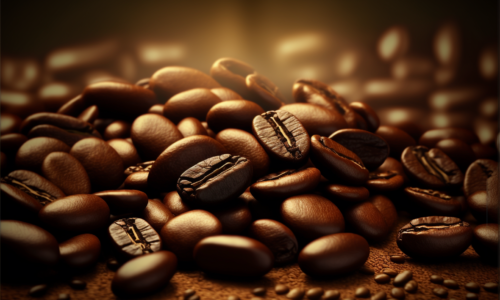We all enjoy a warm cup of coffee, but sometimes we want the taste without the energy boost that comes with it. Decaf coffee can be the perfect solution, but how much caffeine is really in decaf coffee? In this article, we will explore the process of decaffeination, examine the caffeine content of various decaf coffee brands, and answer some frequently asked questions.
What is Decaf Coffee?
Decaf coffee, short for decaffeinated coffee, is a type of coffee that has had most of its caffeine content removed. This process allows coffee lovers to enjoy their favorite beverage without the side effects of caffeine, such as sleep disturbances or increased heart rate.
The Decaffeination Process
There are several methods used to remove caffeine from coffee beans, including:
- Swiss Water Process: This method uses water, temperature, and time to extract caffeine. It is considered the most environmentally friendly option.
- Carbon Dioxide Process: In this technique, CO2 is used as a solvent to extract caffeine from the beans.
- Solvent-Based Process: This method uses chemicals such as ethyl acetate or methylene chloride to remove caffeine.
Each method has its advantages and drawbacks, but all aim to retain the original flavor of the coffee bean while removing the caffeine.

Caffeine Content in Decaf Coffee
Now that we have a basic understanding of what decaf coffee is and how it’s made, let’s dive into the caffeine content of various decaf coffee brands.
Caffeine Content by Brand
The amount of caffeine in decaf coffee can vary depending on the brand and the decaffeination process used. Here is a list of popular decaf coffee brands and their approximate caffeine content per 8-ounce cup:
- Starbucks Decaf House Blend: 15-30 mg
- Dunkin’ Donuts Decaf: 10-20 mg
- Peet’s Coffee Decaf Major Dickason’s Blend: 5-10 mg
- Green Mountain Coffee Roasters Decaf Breakfast Blend: 2-5 mg
- McCafé Decaf Premium Roast: 8-14 mg
Comparing Caffeine Content to Regular Coffee
To put the caffeine content of decaf coffee into perspective, let’s compare it to regular coffee. An 8-ounce cup of regular coffee typically contains between 80-100 mg of caffeine. As you can see, decaf coffee contains significantly less caffeine than its regular counterpart, making it a suitable option for those looking to reduce their caffeine intake.
How to Choose the Best Decaf Coffee

When selecting a decaf coffee, consider the following factors:
- Decaffeination Method: Look for brands that use the Swiss Water Process or CO2 Process, as these methods retain more flavor and are more environmentally friendly.
- Caffeine Content: Choose a decaf coffee with a caffeine content that meets your personal preferences and needs.
- Taste: Read reviews and sample different brands to find a decaf coffee with a flavor profile that you enjoy.
Conclusion
In conclusion, decaf coffee provides a great alternative for those who love the taste of coffee but want to reduce their caffeine intake. While there is still some caffeine present in decaf coffee, the amount is significantly lower than in regular coffee. By understanding the decaffeination process and considering factors such as taste and caffeine content, you can find the perfect decaf coffee to suit your needs.
FAQs
- Is decaf coffee 100% caffeine-free? No, decaf coffee still contains a small amount of caffeine, but it is significantly less than regular coffee. The exact amount varies by brand and decaffeination method.
- Can I drink decaf coffee if I’m pregnant? Decaf coffee is generally considered safe during pregnancy, but it’s always best to consult your healthcare provider to determine the appropriate amount of caffeine for your specific situation.
- Does decaf coffee taste the same as regular coffee? While the decaffeination process aims to retain the original flavor of the coffee bean, some differences in taste may still be present. Many people find decaf coffee to be just as enjoyable as regular coffee, but it ultimately comes down to personal preference.
- Is decaf coffee less acidic than regular coffee? Decaf coffee is generally less acidic than regular coffee, making it a better option for those with acid reflux or other digestive issues. However, acidity levels can still vary between brands, so it’s important to find a decaf coffee that suits your needs.
- Can decaf coffee still help with mental alertness? While decaf coffee contains less caffeine than regular coffee, it may still provide a small mental boost due to its remaining caffeine content. However, the effect will be significantly less pronounced than with regular coffee.



